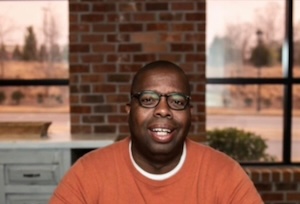When Ben Pilgreen, pastor of Epic Church, moved his family from the Bible belt to San Francisco, California, which is known as one of the most challenging places to reach people with the Gospel, Pilgreen not only had to adjust his way of communicating the Gospel to a Post Christian Culture he also had to learn how people worked and communicated with one another in a work environment. In Pilgreen's new book Bring It Out, Pilgreen digs deep into the gifts people bring to the table when approaching their assignment. He guides the reader through how they can bring their best God-given talent to any project.
Crosswalk Headlines: Where were you when you knew that God was calling you to write this book?
Ben Pilgreen: For starters, I don't consider myself a writer. My wife, Shauna, has published two books, and she has a passion for writing. I have a passion for coaching, teaching, and developing. I have a lot more confidence in my spoken word than my written word. I think it ended up being strategic, but I've kind of played it safe. I wrote it first and didn't try to sell it to be published. I took 200 people through that course during Covid mostly, and seeing it resonate with entrepreneurs, baristas, social justice advocates, young, old, black, white, Asian, seeing rich, poor, you know, people that were millionaires and people that were just out of college.
CWH: Do you see yourself as a Pastor an entrepreneur?
BP: One hundred percent, and that's why I think God's put me in San Francisco to plant a Church.
CWH: What are some of the first steps that people should take when trying to cultivate their gifts?
BP: For me, I had to become convinced that I'm not good at most things, but I'm good at a few things, and I need to go deep into those things. Then, find people better than me to help me cultivate my gifts. Once I became convinced of the reality that God delegates what he wants me to do, then I can carry out my gifts to others.
CWH: In the book, you mention the wisdom table. Can you please explain that?
BP: I think it was 2017. We just did a summer series through the book of Proverbs, and I came across the story in First Kings, Chapter Twelve, which led me to ask our church who is sitting around your table giving you wisdom. It just caught fire quickly around here about asking each other who is sitting around your wisdom table.
CWH: How does one leave the familiar to cultivate their gift?
BP: I think everyone has ideas. I would even say dreams about what could be possible, but I think familiarity is so comfortable that it can hold you back. There were so many things I was afraid of when we moved here, like could a church even make it here. We were comfortable where we came from. I think of the Israelites, who wanted to go back to Egypt. They didn't know what the uncertain promised land would hold or how they would overcome those giants. I think sometimes it's about location like it was for us, but sometimes people need to leave a familiar mindset or a familiar addiction. There are people who would not recognize their lives without a bad habit in their life. It's killing them. We want to have it all but to cultivate your gift; you must leave the familiar.
CWH: Did you say everything that you needed to say in the book?
BP: I felt satisfied with what I have communicated in the book. I think there's still so much of my story and our story here that's left to be unwritten.
Photo Credit: ©Facebook/Ben Pilgreen
 MAINA MWAURA is a freelance writer and journalist who has interviewed over 800 influential leaders, including two US Presidents, three Vice-Presidents, and a variety of others. Maina, is also the author of the Influential Mentor, How the life and legacy of Howard Hendricks Equipped and Inspired a Generation of Leaders. Maina and his family reside in the Kennesaw, Georgia area.
MAINA MWAURA is a freelance writer and journalist who has interviewed over 800 influential leaders, including two US Presidents, three Vice-Presidents, and a variety of others. Maina, is also the author of the Influential Mentor, How the life and legacy of Howard Hendricks Equipped and Inspired a Generation of Leaders. Maina and his family reside in the Kennesaw, Georgia area.